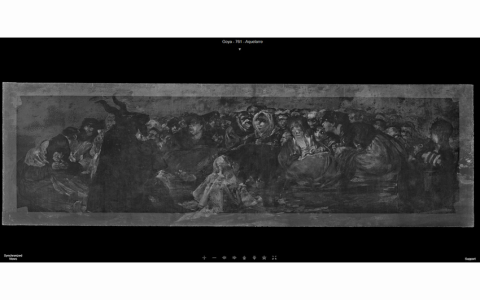Yesterday I finished reading Ariadne, but when I reached the last page, I was completely baffled.
Not because I didn’t recognize the words, but because—I had no idea what the author was trying to say.
It felt like wandering through a labyrinth with no exit, turning and turning, yet never finding the door.
I took a sip of coffee, opened my notebook, and decided to reread the ending.
Rereading + Note-Taking, Slowly Searching for Clues
I read the final chapter twice from start to finish.
Whenever I saw words like “labyrinth,” “thread,” or “sister,” I circled them in the margins.
I also flipped back to earlier dialogues between Ariadne and her sister Phaedra, especially their heated argument.
As I read, I took notes, filling many pages.
I realized their sisterly bond was actually incredibly complex.
On the surface, they were family, but deep down, neither trusted the other. Every word they spoke carried a hidden sting.
Ariadne seemed to constantly bear the consequences for others, even though she herself hadn’t done anything wrong.
I Started “Asking” the Characters in the Book
This method sounded a bit silly, but I tried it.
I spoke to the wall: “Ariadne, you said ‘the labyrinth never releases those it traps’—what exactly did you mean?
Was it the actual labyrinth? Your home? Or the things you couldn’t let go of?”
Then I answered myself:
She wasn’t referring to the physical labyrinth, but her life.
She was arranged and used from childhood, never asked if she wanted it.
She helped Theseus escape, only to be abandoned herself.
She wasn’t a hero—more like a tool discarded after use.
I analyzed a few more lines:
- “My hands are stained with my sister’s blood”—her hands weren’t literally stained; it’s a metaphor. She felt responsible for her sister’s suffering.
- “That thread is still tied to my wrist” — The thread broke long ago, but she still feels controlled.
- “My father’s shadow lurks in every corner” — Her father is dead, but the pressure and fear he left behind remain.
These lines aren’t describing facts, but her feelings.

I organized my thoughts with sticky notes
My desk quickly became cluttered.
I grabbed several sticky notes, jotted down each key element, and pinned them to the wall:
- Ocean → She feels life is like waves, beyond her control
- Shattered pottery → Trust, once broken, cannot be mended
- Temple entwined with vines → She seeks to forget pain through love or drink, but it’s only temporary escape
When I connected these pieces, it suddenly clicked:
The entire ending was her saying: “I refuse to carry others’ sins anymore.”
She wasn’t describing how terrifying the minotaur was—she was saying:
Her mother went mad, her father thought himself a god, her sister destroyed herself—
But she wouldn’t live in their shadows any longer.
A Cat Helped Me See the Light
The funniest part? Just as I grasped the key point, my cat leaped onto the table and… vomited all over my notes.
As I wiped it away, I snapped, “What are you doing?!”
But mid-wipe, it hit me:
Her ending is like this mess—dirty, imperfect, but real.
She didn’t become a “happy person,” nor did she get a happy ending.
She just finally said, “I don’t want this anymore.”
Then she left.
Not looking back didn’t mean she was fine; it meant she chose to move forward on her own terms.
At that moment, I gasped so loudly the neighbors came knocking on the wall.
What I finally understood
This book doesn’t end with “she was cured,” but with “she woke up.”
She spoke those words not out of fear, but because she finally dared to face them.
She no longer called her pain “monsters,” but named them directly:
Control. Lies. Family pressure.
Her final line wasn’t weakness—it was courage.
Like someone standing on stage, delivering their final line, setting down the microphone, and walking away—
Needing neither applause nor forgiveness.
It took me two hours, two highlighters, and the last coffee capsule.
But I think it was worth it.
Because now I know:
Sometimes, an imperfect ending is the true beginning.




